
On this page: MiND Lab | MRS | Audrain Lab | neuroSPEED | Barnett Lab | NOEL | Multimodal Imaging and Connectome Analysis Lab | Chai Lab | SSBM | NIST Lab | Couturier Lab | Human Dopamine Neuroimaging Lab | SPINDL | Frontotemporal Dementia & Neuropsychiatry | ACE Lab | Geddes Lab | NIL | Radiochemistry and PET tracers Development | Leyton Lab | Radiochemistry and Cyclotron Lab | NeuroPM Lab | Network Neuroscience Lab | Translational Neuroimaging Laboratory | Neuro-Data-Science ORIGAMI Lab | Dr. Provost | Quantitative Microstructure Imaging | Visual Systems Neuroscience & Brain Imaging Signals | CERC in Metabolism and the Brain | Dr. Soucy | Laboratory of Brain and Cognition | High-resolution quantitative MR imaging | The Villeneuve Lab | Zatorre Lab
 |
Multimodal Imaging of Neurodegenerative Diseases (MiND) LabPrincipal Investigator: Udunna Anazodo, PhD - Assistant Professor More InformationThe MiND Lab pursues basic and clinical science research questions that strive to create quantitative PET/MRI tools for understanding the neurobiology of degenerative diseases that drive disorders of cognition and behavior. |
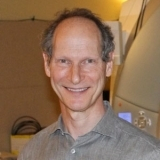 |
MRS: Magnetic Resonance StudiesPrincipal Investigator: Douglas Arnold, MD - James-McGill Professor More InformationDr. Douglas Arnold is a neurologist with special expertise in MRI. His personal research interests are centered on the use of advanced neuro-imaging techniques to assess the pathological evolution of multiple sclerosis and Alzheimer's disease and to quantify the effects of therapy on these diseases. |
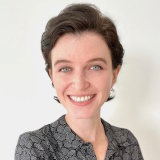 |
Audrain LabPrincipal Investigator: Sam Audrain, PhD - Assistant Professor More InformationSam Audrain is studying how the brain forms long-term memories. Her lab designs experiments that leverage diverse approaches to understand the neural basis of memory, including behavioural manipulations in populations with healthy versus dysfunctional memory, polysomnography, and cutting-edge fMRI approaches at 3 and 7 Tesla. Her work focuses on how new memory traces are strengthened in the brain over time for long-term storage, and how this process fails in populations who show pathological forgetting. She is particularly interested in memory in patients with temporal lobe epilepsy, and additionally researches methods of predicting cognitive decline after surgical intervention in these patients. |
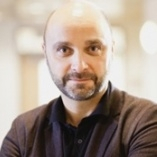 |
neuroSPEED: Neural Dynamics of Brain SystemsPrincipal Investigator: Sylvain Baillet, PhD - Professor & Director, MEG Core More InformationOur lab’s broad objective is to comprehend the nature and macroscopic mechanisms of large-scale, network brain activity — how they enable complex behavior, how they are altered in disease. |
 |
Barnett LabPrincipal Investigator: Alexander Barnett, PhD - Assistant Professor More InformationAlex Barnett completed his B.Sc., M.A. and PhD at the University of Toronto at Toronto Western Hospital investigating the neural underpinnings of cognition in temporal lobe epilepsy. He completed his postdoctoral training at the University of California, Davis before starting a faculty position at the University of Toronto. He is now an assistant professor at The Neuro (Montreal Neurological Institute-Hospital). Barnett’s research incorporates elements of systems neuroscience, cognitive psychology, and clinical neuropsychology in creative ways to expand our understanding of episodic memory. His research explores how neocortical networks in the brain interact with the hippocampus to support the formation, retrieval, and transformation of episodic memories and how this process is altered in temporal lobe epilepsy and other neurological disorders. |
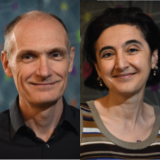 |
NOEL: Neuroimaging of EpilepsyPrincipal Investigators: Andrea Bernasconi, MD - Professor, Neda Ladbon-Bernasconi, MD, PhD - Associate Professor More InformationThe research activity of NOEL is centered on the development of advanced magnetic resonance imaging (MRI) techniques to better understand causes, consequences and mechanisms responsible for epilepsy. |
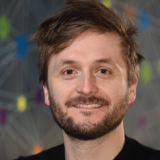 |
Multimodal Imaging and Connectome Analysis LabPrincipal Investigator: Boris Bernhardt, PhD - Assistant Professor More InformationBoris Bernhardt is a cognitive scientist with expertise in neuroimaging, network neuroscience, and statistical learning. He joined McGill as Assistant Professor of Neurology and Neurosurgery in 2016 and heads the Multimodal Imaging and Connectome Analysis Lab. |
 |
Bzdok LabPrincipal Investigator: Danilo Bzdok, PhD - Associate Professor More InformationThere is now increasing momentum in data sharing, open access, and data collection consortia that build richly annotated "big data" repositories for brain and behavior. This unprecedented data setting creates a rapidly growing potential to provide principled answers to human brain organization and its disturbances in brain disease. Dr. Bzdok will take the opportunity to explore, formalize, and predict brain phenotypes of hidden population variation by capitalising on heterogeneous data sources to tackle open questions in systems neuroscience in a way that also paves new ways for precision medicine in brain health. |
 |
Chai LabPrincipal Investigator: Xiaoqian Chai, PhD - Assistant Professor More InformationThe overarching goal of our research is to understand the relation between brain organization and cognitive development. We examine how large-scale brain networks support learning, memory and language. We are particularly interested in the neural developmental processes underlying these cognitive functions from children to adults, and how experience and disease can alter brain organization. Our research methodology includes behavioral, brain imaging (fMRI, resting-state fMRI, DTI) and computational approaches. |
 |
Sensory and Social Brain Mechanisms Lab (SSBM lab)Principal investigator: Justine Cléry, PhD - Assistant Professor More InformationJustine Cléry is studying which and how brain networks support cognitive processing such as sensory processes and social cognition, and how they are established and modulated across our lifespan. Her lab uses neuroimaging techniques (functional and structural magnetic resonance imaging, diffusion, microstructural imaging) and behavioural measurements (eye-tracking, touchscreen-based tasks, reaction times, observation) in nonhuman primate models (macaques and marmosets). In addition, her lab investigates these brain mechanisms in control and autistic subjects. |
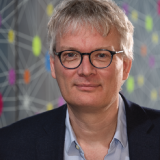 |
NIST: Neuro Imaging and Surgical Technologies LabPrincipal Investigator: D. Louis Collins, PhD - Professor More InformationThe Neuro Imaging and Surgical Technologies Laboratory develops computer vision image processing algorithms for analysis of medical images that are focused on registration and segmentation. These techniques are applied to different research projects that include image guided neurosurgery and disease diagnosis, prognosis and quantification for diseases such as multiple sclerosis, epilepsy, schizophrenia and degenerative diseases such as Alzheimer’s dementia. |
 |
Couturier LabPrincipal Investigator: Charles P. Couturier, MD, PhD - Assistant Professor More Information
|
 |
Human Dopamine Neuroimaging LabPrincipal Investigator: Alain Dagher, MD - Associate Professor More InformationDr. Dagher is a neurologist specializing in movement disorders and functional brain imaging. His research aims at understanding the function of the basal ganglia, with a particular emphasis on appetitive behaviours. This involves studying how we learn about rewards and punishments, and become motivated to engage in reward seeking behaviours. The two main techniques used are positron emission tomography (PET) targeting the dopamine system, and functional magnetic resonance imaging (fMRI). The research focuses on Parkinson’s disease, stress, drug addiction (notably cigarette smoking), pathological gambling, and obesity. Dr. Dagher is funded by CIHR, FRSQ, NIDA, the Parkinson Society of Canada, The Institute for Research on Pathological Gambling and Related Disorders, and Unilever PLC. |
 |
Spino-cerebral Plasticity and Integrated Neuroimaging in Disease and Learning Laboratory (SPINDL)Principal Investigator: Julien Doyon, PhD - Professor & Director, McConnell Brain Imaging Centre More InformationResearch in our laboratory is structured around two poles: a fundamental research pole that is focused on the neuroscience of learning and memory and an applied research pole that seeks to apply the knowledge gained therein in neurodegenerative and neurological diseases, such as Parkinson’s and amyotrophic lateral sclerosis. |
 |
Frontotemporal Dementia & NeuropsychiatryPrincipal Investigator: Simon Ducharme, MD, MSc - Assistant Professor More InformationThe FTD & Neuropsychiatry Lab led by Dr. Simon Ducharme aims to develop clinical and therapeutic tools for neuropsychiatric disorders, focusing on major neurocognitive disorders. We are conducting translational studies using structural and functional imaging in frontotemporal dementia (FTD) to improve early diagnostic markers for this devastating disease. Our group is involved in several national and international neuroimaging studies on dementia, in addition to innovative clinical trials on Alzheimer’s disease and FTD. |
 |
ACE LabPrincipal Investigator: Alan C. Evans, PhD - James-McGill Professor More InformationACELab was established in 1984, when Dr. Evans moved to the Montreal Neurological Institute (MNI) at McGill University to continue his PET research. The lab has made pioneering contributions to multi-modal brain imaging with PET and MRI, image processing and large-scale brain database analysis and cutting edge 3D computer imaging techniques, and continues to foster a research and training environment to use these methods and address long-standing questions about brain development and neurodegenerative diseases. |
 |
Geddes lab for Motivational NeuromedicinePrincipal Investigator: Maiya Rachel Geddes, MD, FRCPC - Assistant Professor More InformationMaiya Geddes is a Neurologist Scientist at McGill University and leads a research program at the Montreal Neurological Institute. Her research aims to characterize motivational processes in aging and early Alzheimer’s disease using translational neuroscience and brain imaging techniques. Dr. Geddes applies this new knowledge to design interventions and behavioural randomized controlled trials with the goal of dementia prevention. |
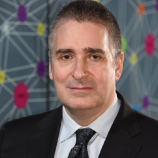 |
NIL: Neurometabolic ImagingPrincipal Investigator: Richard Hoge, PhD - Associate Professor More InformationRichard Hoge is an Associate Professor in the Department of Neurology and Neurosurgery, and Director of the Human Magnetic Resonance (MRI) Program. Hoge is a physicist who develops new brain imaging technology that is used to examine cognitive processes in the elderly. He creates programs for functional MRI and advanced positron emission tomography (PET) to study the state of brain function in both healthy and pathological subjects. He comes to The Neuro from the Université de Montréal, where he was associate director of the Functional Neuroimaging Unit CRIUGM and an associate professor at the Institute of Biomedical Engineering. |
 |
NeuroPM LabPrincipal Investigator: Yasser Iturria Medina, PhD - Assistant Professor More InformationDr. Yasser Iturria Medina, a Canada Research Chair Tier-2 on Multimodal Data Integration in Neurodegeneration, is an Assistant Professor in the Department of Neurology and Neurosurgery. He is also an associate member of the Ludmer Centre for Neuroinformatics and Mental Health and the McConnell Brain Imaging Centre. Yasser received his undergraduate degree in Nuclear Engineering from the Higher Institute for Nuclear Sciences and Technology, Cuba, in 2004, and his Master’s degree in Neurophysics and Neuroengineering from the Cuban Neuroscience Center in 2006. He then completed his PhD in Neuroimaging and Neuroinformatics at the National Center for Scientific Research and Havana’s University of Medical Science in 2013. He came to the MNI/BIC as a postdoctoral student in 2013, before being appointed as an Assistant Professor in 2018. |
 |
Radiochemistry and PET Tracers DevelopmentPrincipal Investigator: Alexey Kostikov, PhD - Assistant Professor More InformationThe Radiochemistry and PET Tracers Development Laboratory develops and adopts the synthesis of novel positron emission tomography (PET) radiotracers to directly study expression of various molecular biomarkers in healthy and pathological CNS. We are now focused on exploring neurotrophin regulation and signalling via different receptors including p75NTR, Trk and sortilin. We are also interested in studying the regulation of neuropeptide Y transmission system through the development of ligands for Y2 receptors. |
 |
Leyton LabPrincipal Investigator: Marco Leyton, PhD - Professor More InformationDr. Leyton is a Full Professor in McGill University’s Department of Psychiatry, a past-President of the Canadian College of Neuropsychopharmacology (CCNP), and a founding member of the Scientific Advisory Council to the Canadian Centre for Substance use and Addictions (CCSA). The focus of his research is the neurobiology of addictions and addiction related disorders. Dr. Leyton received his B.Sc. from Memorial University of Newfoundland (MUN), and his M.A. and Ph.D. degrees at Concordia University’s Center for Studies in Behavioral Neurobiology (CSBN). As a graduate student, he studied the neurobiology of reward-seeking behaviors in laboratory animals. As a post-doctoral fellow, he learned the tools of clinical neuroscience and developed a research program designed to test these ideas in humans. During the past 25 years, he has produced a translational research program, developing new methods for manipulating neurotransmitter function and mapping the neurobiology of substance use in humans. |
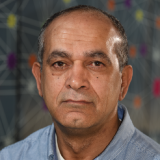 |
Radiochemistry and Cyclotron LabPrincipal Investigator: Gassan Massarweh, PhD - Assistant Professor, Director, PET Unit and Cyclotron-Radiochemistry More InformationDr. Massarweh's group focuses on cutting-edge developments in radiochemistry along the following principal axes of research:
|
 |
Network Neuroscience LabPrincipal Investigator: Bratislav Misic, PhD - Assistant Professor More InformationBratislav Misic leads the Network Neuroscience Lab and investigates how cognitive operations and complex behaviour emerge from the connections and interactions among brain areas. |
 |
Neuro-Data-Science ORIGAMI LabPrincipal Investigator: Jean-Baptiste Poline, PhD - Associate Professor More InformationOur aim is to produce and promote open and reproducible neuroimaging research, with a focus on neuroimaging data science and neuroinformatics. ORIGAMI stands for Open & Reproducible Imaging Genetics and Applied Machine Intelligence. |
 |
Dr. Karine ProvostPrincipal Investigator: Karine Provost, MD, MSc - Adjunct Professor, Medical Director, PET Unit More InformationDr. Provost graduated from McGill Medical School in 2013 and completed her Nuclear Medicine residency at Université de Montréal in 2018. From 2019 to 2020, she pursued subspecialty fellowship training in PET molecular neuroimaging at the University of California, San Francisco (UCSF) Memory and Aging Center. In 2022, she earned a Master’s degree in Biomedical Sciences – Aging Studies, with her thesis focusing on the use of Tau PET in evaluating neurodegenerative diseases. |
 |
Translational Neuroimaging LaboratoryPrincipal Investigator: Pedro Rosa Neto, MD, PhD - Professor More InformationTranslational Neuroimaging Laboratory (TNL) develops neuroimaging techniques and analytical frameworks for modeling neurodegenerative processes including deposition of protein aggregates, metabolic abnormalities, cell transport systems and neuroreceptors dysfunction. The laboratory encompasses a cohesive multidisciplinary team conducting integrative and multimodal neuroimaging research in human disease as well as disease models. TNL collaborates with an extensive network of laboratories and is committed to scientific training in the field of neuroimaging. |
 |
Quantitative Microstructure ImagingPrincipal Investigator: David Rudko, PhD - Assistant Professor, Co - Director, MRI Unit More InformationDavid Rudko is an Assistant Professor in the Departments of Neurology and Neurosurgery and Biomedical Engineering at the Montreal Neurological Institute of McGill University. Prof Rudko completed his PhD in Physics with a specialization in ultra-high field MRI under the supervision of Dr. Ravi Menon at the University of Western Ontario. |
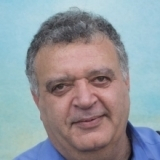 |
Visual Systems Neuroscience & Brain Imaging SignalsPrincipal Investigator: Amir Shmuel, PhD - Professor More InformationThe research in our laboratory is focused on two goals. The first is to understand the neuronal mechanisms that underlie functional brain imaging signals, and to evaluate the degree to which these signals reflect the locally measured neuronal activity. The second is to elucidate the principles and processes used by the cerebral cortex to analyze visual information and to create coherent visual perception. |
 |
Canada Excellence Research Chair in Metabolism and the BrainPrincipal Investigator: Dana Small, PhD - Professor More InformationDana M Small is the Canada Excellence Research Chair in Metabolism and the Brain. She holds primary appointments in Neurology and Neurosurgery and in Internal Medicine. Professor Small received her PhD in Clinical Psychology from McGill University in 2001 and subsequently established her lab at Yale University, where she was on faculty for 20 years. Her research combines neuroimaging and metabolic measurements to understand how the brain and body integrate signals from the external environment and the internal milieu to optimize behaviour and metabolism. Her laboratory also studies how dysregulation of these body-brain axes contribute to the development of obesity, diabetes, cognitive impairment and psychiatric disorders. |
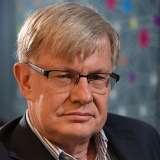 |
Dr. Jean-Paul SoucyPrincipal Investigator: Jean-Paul Soucy, MD, MSc - Associate Professor, member of PET Unit More InformationJean-Paul Soucy, MD, M.Sc., is a physician with primary training is in nuclear medicine and he has an MSc in Neuroscience. He completed a fellowship at Service Hospitalier Frédéric-Joliot, Orsay, France, working on the evaluation of brain perfusion in the acute phase of strokes. |
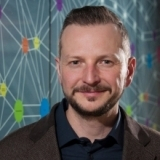 |
Laboratory of Brain and CognitionPrincipal Investigator: Nathan Spreng, PhD - Professor More InformationNathan Spreng is studying how brain networks support various cognitive processes such as remembering information, and how we use this knowledge to influence our decisions. His lab examines large-scale brain network dynamics and their role in cognition. Currently, we investigate attention, memory, cognitive control, and social cognition, and the interacting brain networks that support them. We are also actively involved in the development and implementation of multivariate and network-based statistical approaches to assess brain structure, connectivity and activity. In doing so, we aim to better understand the properties of brain networks underlying cognitive processes as they change across the lifespan in health and disease. |
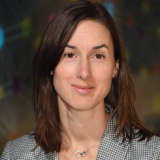 |
High-resolution quantitative MR imagingPrincipal Investigator: Christine Tardif, PhD - Assistant Professor, Co - Director, MRI Unit More InformationDr. Christine Tardif is an Assistant Professor in the Department of Neurology and Neurosurgery and the Department of Biomedical Engineering. She is also a member of the magnetic resonance imaging (MRI) core of the McConnell Brain Imaging Centre. |
 |
The Villeneuve LabPrincipal Investigator: Sylvia Villeneuve, PhD - Assistant Professor More InformationThe Villeneuve Lab is interested in how the brain ages, with a specific focus on factors that modify the association between brain lesions and cognitive performance. Our research is motivated by the fact that more than 25% of older adults are considered cognitively normal despite the presence of beta-amyloid in their brain, a hallmark of Alzheimer’s disease. This fact suggests that other factors interact with beta-amyloid to trigger cognitive deficits in Alzheimer’s disease. It also suggests that actions can be taken to prevent or postpone disease-related symptoms. The main focus of the Villeneuve Lab’s research is therefore to examine the factors that protect against, or worsen, the development of cognitive deficits in age-related neurodegenerative diseases. |
 |
Zatorre LabPrincipal Investigator: Robert J. Zatorre, PhD - Professor More InformationRobert Zatorre is a cognitive neuroscientist at the Montreal Neurological Institute of McGill University. He was born and raised in Buenos Aires, Argentina, and carried out his doctoral studies at Brown University with the late Peter Eimas, followed by postdoctoral work with Brenda Milner. He currently holds a Canada Research Chair at the Montreal Neurological Institute of McGill University. In 2006 he became the founding co-director, with Isabelle Peretz, of the international laboratory for Brain, Music, and Sound research (BRAMS). His work has been recognized with several awards including the IPSEN foundation prize in neuronal plasticity in 2011, the Knowles prize in hearing research from Northwestern University in 2013, election to the Royal Society of Canada in 2017, and the de Carvalho-Heineken prize in cognitive science from the Netherlands Academy of Arts and Sciences in 2020. He is also a fellow of the Canadian Institute for Advanced Research. |




